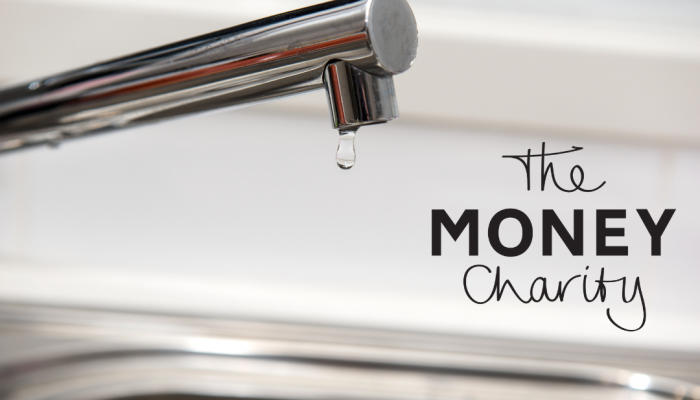With prices across the board rising at their fastest rate in 40 years, the challenge for UK consumers to stay on top of their money is forcing many to have to make difficult choices with their spending priorities, according to the May 2022 Money Statistics, produced by The Money Charity.
As the UK inflation rate reached 9.0% in the twelve months to April 2022, the highest estimated level since 1982, households across the UK are facing increasingly stark decisions in how to manage their expenditure. Around three-quarters of the inflation rise has been from the increase in electricity and gas bills, which comes after the April increase in the energy price cap with millions seeing large increases to their monthly bills. However, in the latest available data from Q4 2021, day-to-day utility spending on water, electricity and gas had actually fallen, with UK households spending £115.40 million a day, or £4.15 a day, compared to £4.28 in Q3 2021.
With widespread reports of people having to cut back on heating their homes, turning lights off or washing less frequently in order to make ends meet, the early indications are that many are already facing difficult ‘either/or’ choices between utility bills, food, rent and transport. As Q1 2022 data emerges, the effect of recent drastic price rises will be more clearly seen, whether that’s through spending decreasing, as people cut back further, or it increasing as bills get higher overall.
Elsewhere, the Bank of England base rate was increased in May for the fourth time in recent months, in an effort to slow the rate of rising prices, while in April the cost of petrol fell very slightly although diesel continued to rise. The average price of unleaded petrol decreased by 1.6ppl to 162.2 ppl, which meant it cost £81.10 to fill a 50-litre unleaded tank, 80p less than last month. The equivalent rate for a diesel tank cost only £1.05 more, following the £11.10 increase in March.
While some are having to cut spending choices from their budget, there are also concerning signs that others are being forced to turn further towards credit. StepChange have recently reported that, out of the people who say they use credit to meet essential costs due to financial difficulties, 82% used at least one form of revolving credit. With credit card and overdraft interest rates both creeping up, these products are becoming ever less affordable as emergency backups.
Michelle Highman, Chief Executive of The Money Charity says:
“This month again brings little to nothing in the way of positive financial news with inflation so high and all kinds of prices continuing to rise. To hear of people having to make hard choices between the most basic and essential of everyday necessities is truly heart-breaking and, while we may say ‘spending choices’, in reality they bear scant resemblance to a regular definition of ‘choice’.
“It’s exactly these circumstances which is leading to us hearing from so many organisations about our Financial Wellbeing Workshops and Webinars. Employers, charities and community organisations alike are desperate to equip their people with whatever tools and knowledge they can, in order to help them navigate their way through these times. We’d encourage any other organisations out there with similar aims to find out more about how we can help.”
Other Striking Numbers from the May Money Statistics:
- In April 2022, the average rate for an overdraft was 07%, while the average rate for a credit card was 21.40%. (P15.)
- In the year to March 2022, average first-time buyer house prices increased by 9%. (P10.)
- Government debt increased by £467 million a day in the three months to April 2022. (P19.)
Get the full picture and many more fascinating facts about money in the UK in our monthly Money Statistics.
Notes to Editors
- For over 25 years, The Money Charity has been the UK’s Financial Capability charity. We proactively provide education, information, advice and guidance to people of all ages, to reach our vision of seeing everyone achieving Financial Wellbeing by managing their money well. We empower people across the UK to develop the skills, knowledge, attitudes and behaviours to make the most of their money throughout their lives. Find out more at http://themoneycharity.org.uk/
- All statistics are from the latest available data at the time of writing/release.
- You may use any of the statistics quoted in this release, or within The Money Statistics, as long as:
- You don’t make any commercial or financial gain from their use;
- You clearly acknowledge The Money Charity as the providers of the information and point your audience towards signing up themselves for the monthly report; and
- You do not make substantive adjustments to the presentation of the statistics, such as amending the statistic phrasing, or for example, repurposing the statistics into a format they are not appropriate for, such as an editorial/’opinion piece’ from the charity.
- If you’d like The Money Statistics emailed to you every month as soon as they’re published, please sign up at: http://themoneycharity.org.uk/money-statistics/
- If you’ve any questions, comments, or want any information about the source of these statistics, please contact us through hello@themoneycharity.org.uk
- Any media or press enquiries should be directed to our Policy & Marketing Officer, Olivia Sizeland, on olivia@themoneycharity.org.uk
